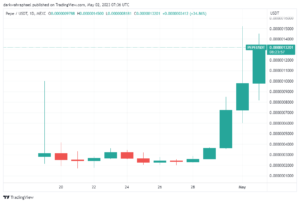
Abu Dhabi’s Advanced Technology Research Council (ATRC) has introduced an AI company known as AI71, a competitor to other big AI firms like OpenAI.
This comes as Abu Dhabi is fighting for a significant share of the global AI market, with eyes on becoming a global hub for the fast-growing technology.
AI71 is central to “economic verticals”
The Crown Prince of Abu Dhabi, Sheikh Khaled bin Mohamed, officially launched the company. ATRC’s subsidiary VentureOne will take the AI company to the market across multiple domains.
The National reports that the AI71, which is built on the Falcon large language models, seeks to democratize access to AI. According to the secretary general of the council, Faisal Al Bannai, the AI71’s main purpose is to “cater for the key economic verticals.”
The initial stage will see the launch of AI71 for medical, education, legal, and government fields, with “many others” to come.
“By creating AI71, (the company) becomes a major part of driving the digital economy and driving AI use across multiple sectors. So, it increases our efficiency and ability to be much more productive and competitive globally,” Bannai told The National.
He further emphasized Abu Dhabi’s long-term goal and vision of becoming a global hub for AI technology.
“We will not be shy in our objectives; we will not be humble in our goals. We are determined to be key in shaping where AI is going globally. AI71 will play a pivotal role in this journey.”
Also read: Japan Won’t Penalize Developers in Upcoming Generative AI Guidelines
Strategic partnerships
Bannai indicated AI71 is fostering strong partnerships with other entities, which form part of its early partnerships. These include collaborations with the Ministry of Artificial Intelligence, the Digital Economy, and Remote Work Applications.
Abu Dhabi’s start-up economy and the Department of Government Enablement, which centralizes over 30 government entities through digitization, are among the UAE organizations that have signed.
Outside Abu Dhabi, the new AI company is also collaborating with global brands. These include Amazon Web Services (AWS), US IT management firm World Wide Technology, CNTXT, consultancy firm PwC, and the Saudi Aramco-backed venture that is Google Cloud’s exclusive partner in the kingdom.
Bannai said, “These pivotal agreements are about to shape our collective future, explore our offerings, and envision a future where AI is for all.”
The AI race
Since the launch of OpenAI’s ChatGPT last November with immediate success, there has been a flurry of generative AI developments. Big companies like Microsoft, Amazon, Google, Oracle, and Baidu have all joined the AI race.
Recently, tech billionaire Elon Musk’s company, xAI, launched an AI tool named Grok. The UAE has also been active in the AI race, making a mark in the sector.
Abu Dhabi has initiated various AI projects and released some LLMs, which are the underlying algorithms that fuel generative AI.
In August, Abu Dhabi AI firm G42’s unit Inception, together with Mohamed bin Zayed University of Artificial Intelligence and Silicon Valley-based Cerebras Systems, collaborated and introduced an open-source bilingual Arabic-English model, Jais.
Prior to this, the Technology Innovation Institute (TII) had launched its Falcon flagships, LLM and Noor. At the time of launch, this was reportedly the largest Arabic natural language model “to grow generative AI capabilities in the region.”
Generative AI is touted as a significant enabler of economic growth. A PwC Unit Strategy and Middle East report projects Gulf countries will reap about $23.5 billion in economic benefits by 2030. The increasing AI investments will drive this growth.
Safety and privacy
Bannai acknowledges the potential risks and private concerns with the AI models. However, he assured that AI71 models will ensure user privacy and the security of data. Users hold the ultimate power and control over their data.
“You are giving access to your most sensitive data that you have so that you can get analysis back,” he said.
“This is an area where we want to make sure we bring back control to the owner of the data when it comes to the new era of AI,” he added.
- SEO Powered Content & PR Distribution. Get Amplified Today.
- PlatoData.Network Vertical Generative Ai. Empower Yourself. Access Here.
- PlatoAiStream. Web3 Intelligence. Knowledge Amplified. Access Here.
- PlatoESG. Carbon, CleanTech, Energy, Environment, Solar, Waste Management. Access Here.
- PlatoHealth. Biotech and Clinical Trials Intelligence. Access Here.
- Source: https://metanews.com/abu-dhabi-shows-off-ai-firm-ai71-to-spur-digital-economy/
- :has
- :is
- :not
- :where
- 10
- 2030
- 30
- 7
- a
- ability
- About
- abu dhabi
- access
- According
- across
- active
- added
- advanced
- Advanced Technology
- agreements
- AI
- AI models
- AL
- algorithms
- All
- also
- Amazon
- Amazon Web Services
- Amazon Web Services (AWS)
- among
- an
- analysis
- and
- applications
- arabic
- ARE
- AREA
- artificial
- artificial intelligence
- AS
- assured
- At
- AUGUST
- AWS
- back
- Baidu
- BE
- becomes
- becoming
- been
- benefits
- Big
- Billion
- billionaire
- BIN
- brands
- bring
- built
- by
- CAN
- Can Get
- capabilities
- central
- ChatGPT
- collaborated
- collaborating
- collaborations
- Collective
- come
- comes
- Companies
- company
- competitive
- competitor
- Concerns
- consultancy
- control
- Council
- countries
- Creating
- Crown
- data
- democratize
- Department
- determined
- developers
- developments
- Dhabi
- digital
- Digital economy
- digitization
- domains
- drive
- driving
- Early
- East
- Economic
- Economic growth
- economy
- Education
- efficiency
- Elon
- Elon Musk’s
- emphasized
- enablement
- enabler
- ensure
- entities
- envision
- Era
- Exclusive
- explore
- Eyes
- faisal
- Fields
- fighting
- Firm
- firms
- flurry
- For
- form
- fostering
- Fuel
- further
- future
- General
- generative
- Generative AI
- get
- Giving
- Global
- Globally
- goal
- Goals
- going
- Government
- Grow
- Growth
- gulf
- had
- Have
- he
- hold
- However
- HTTPS
- Hub
- humble
- immediate
- in
- inception
- include
- Increases
- increasing
- indicated
- initial
- initiated
- Innovation
- Institute
- Intelligence
- introduced
- Investments
- IT
- ITS
- joined
- journey
- Key
- khaled
- Kingdom
- known
- language
- large
- largest
- Last
- launch
- launched
- Legal
- like
- LLM
- long-term
- Main
- major
- make
- Making
- management
- mark
- Market
- medical
- Microsoft
- Middle
- Middle East
- ministry
- model
- models
- Mohamed
- more
- most
- much
- multiple
- Named
- National
- Natural
- New
- November
- objectives
- of
- off
- Offerings
- Officially
- on
- open source
- OpenAI
- oracle
- organizations
- Other
- our
- over
- owner
- part
- partner
- partnerships
- pivotal
- plato
- Plato Data Intelligence
- PlatoData
- Play
- potential
- power
- Prince
- privacy
- private
- productive
- projects
- purpose
- PWC
- Race
- Read
- reap
- region
- released
- remote
- remote work
- report
- Reports
- research
- risks
- Role
- Said
- Saudi
- secretary
- sector
- Sectors
- security
- see
- Seeks
- sensitive
- Services
- Shape
- shaping
- Share
- sheikh
- Shows
- shy
- signed
- significant
- Silicon
- So
- some
- Stage
- Start-up
- Strategy
- strong
- subsidiary
- success
- sure
- Systems
- Take
- tech
- Technology
- Technology Innovation
- that
- The
- their
- There.
- These
- this
- Through
- time
- to
- together
- told
- tool
- touted
- UAE
- ultimate
- underlying
- unit
- university
- upcoming
- us
- use
- User
- user privacy
- users
- various
- venture
- verticals
- vision
- want
- was
- we
- web
- web services
- when
- which
- wide
- will
- with
- Work
- world
- You
- Your
- zayed
- zephyrnet













